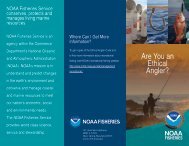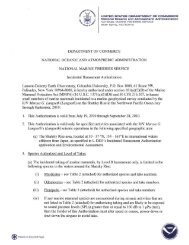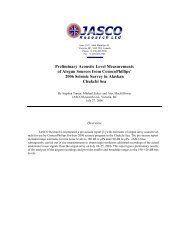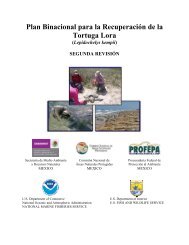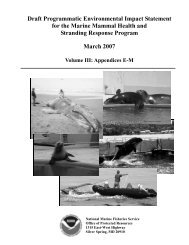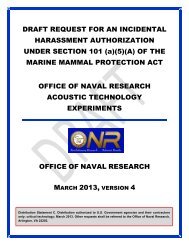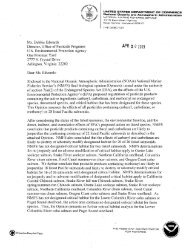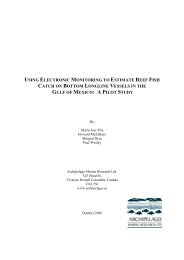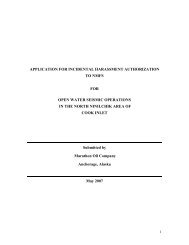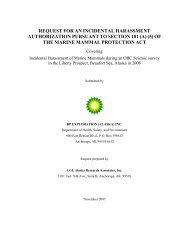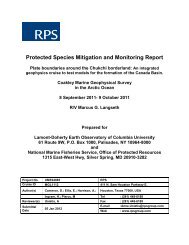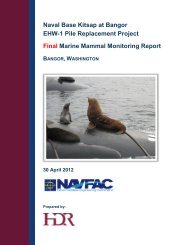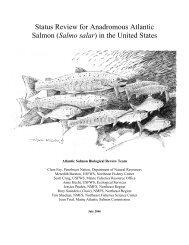Proceedings of the International Cyanide Detection Testing Workshop
Proceedings of the International Cyanide Detection Testing Workshop
Proceedings of the International Cyanide Detection Testing Workshop
You also want an ePaper? Increase the reach of your titles
YUMPU automatically turns print PDFs into web optimized ePapers that Google loves.
ecome <strong>the</strong> partner and counterpart <strong>of</strong> <strong>the</strong><br />
CDT labs network especially, <strong>the</strong> marine<br />
ornamental industry reform in general.<br />
In 1997, Telapak collaborated with <strong>the</strong> IMA<br />
to implement <strong>the</strong> Destructive Fishing Reform<br />
Program (DFRP) in Indonesia. <strong>Cyanide</strong><br />
testing was one component <strong>of</strong> <strong>the</strong> DFRP; a<br />
broader community-based program involving<br />
rapid resource appraisal, net-training and<br />
o<strong>the</strong>r alternative livelihood training programs,<br />
enterprise trainings, marine education <strong>of</strong><br />
school children, instruction <strong>of</strong> fi sherfolk<br />
in coastal conservation practices, farming<br />
corals and giant clams, and mapping using<br />
geographic information systems (GIS). Plans<br />
by Telapak to implement CDT in Indonesia<br />
in collaboration with <strong>the</strong> IMA (discussed at<br />
<strong>the</strong> <strong>International</strong> Coral Reef Symposium held<br />
in Denpasar in 2000) did not happen because<br />
<strong>of</strong> <strong>the</strong> lack <strong>of</strong> funding and o<strong>the</strong>r problems.<br />
144<br />
Telapak’s main achievement with destructive<br />
fi shing reform was <strong>the</strong> establishment <strong>of</strong><br />
two villages, which are presently completely<br />
cyanide-free. Through education, economic<br />
incentives, and peer pressure, <strong>the</strong> villages<br />
now capture and export totally cyanide-free<br />
MAF from <strong>the</strong> village <strong>of</strong> Les (situated in<br />
nor<strong>the</strong>rn Bali) and farm artifi cial live rock<br />
and corals grown from fragments in <strong>the</strong><br />
village <strong>of</strong> Serangan (situated near Denpasar<br />
in sou<strong>the</strong>rn Bali). Telapak in collaboration<br />
with <strong>the</strong> Philippines based East Asia Seas<br />
and Terrestrial Initiatives have succeeded<br />
in changing <strong>the</strong> behavior <strong>of</strong> fi sherfolk for<br />
sustainable use <strong>of</strong> marine resources and<br />
<strong>the</strong> implementation <strong>of</strong> reef restoration<br />
programs. This was achieved after a number<br />
<strong>of</strong> setbacks. Community organizing, technical<br />
intervention, management support, market<br />
reform, and educational components were<br />
integrated into a holistic community-based<br />
program supporting conservation <strong>of</strong> marine<br />
ecosystems and sustainable use by <strong>the</strong> MAF<br />
fi shery.



